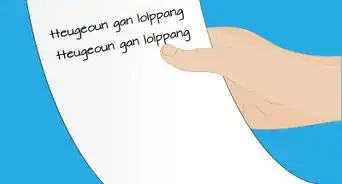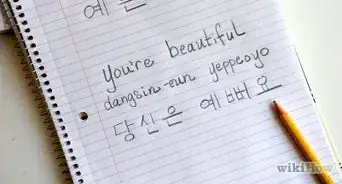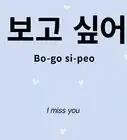X
wikiHow is a “wiki,” similar to Wikipedia, which means that many of our articles are co-written by multiple authors. To create this article, volunteer authors worked to edit and improve it over time.
This article has been viewed 9,591 times.
Learn more...
Koreans prefer to text rather than call. Starting a conversation in Korean is a bit different than it is in English. Also, texting friends is very different from texting business associates. It's important to understand Korean texting etiquette. This guide will show you how to text in casual and formal situations. So follow the steps below to text in Korean!
Steps
Method 1
Method 1 of 2:
Using Casual Texting Methods
-
1Start the conversation casually. Start by asking something simple as below:
- 굿모닝 (Good morning)
- 안녕 (Hi)
- 뭐해? (What's up?)
- 어디야? (Where are you?)
-
2Respond in kind. Respond to conversation starters with simple responses:
- OO하고 있어 (I'm doing ____)
- ㅋㅋ/ㅎㅎ (LOL)
- 헉/헐 (OMG)
- OO야 (I'm at _____)
Advertisement -
3Maintain Conversation. Maintain the conversation with these methods:
- 너는 뭐해? (What are you up to?)
- 점심 메뉴는 뭐야? (What are you eating for lunch?)
- 오늘 뭐해? (What are you doing today?)
-
4End Conversation. End the conversation politely when you need to go:
- 점심 맛있게 먹어 (Have a nice lunch)
- 저녁 맛있게 먹어 (Have a nice dinner)
- 잘자 (Sleep well)
- 하러 갔다올게 (I'm going to ____ and be back)
Advertisement
Method 2
Method 2 of 2:
Using Formal Texting Methods
-
1Start the conversation formally. Start the conversation in formal situations like messaging potential employers, co-workers and clients(학부모) this way:
- 좋은 아침입니다 (Good morning)
- 안녕하세요 (Hello)
-
2Respond formally. Keep things professional like this:
- 네, 좋은 아침입니다 (Yes, good morning)
- 안녕하세요 (Hello)
-
3Maintain conversation formally. Keep a conversation going with business associates:
- OO에 대해 여쭤봐도 될까요? (May I ask about _____?)
- 몇 시에 뵐까요? (What time shall we meet?)
- OO카페에서 뵙겠습니다. (I’ll meet you at _____ cafe.)
-
4End the conversation formally. Conclude things in a polite way:
- 좋은 하루 보내세요 (Have a nice day)
- 감사합니다 (Thank you)
- 감기 조심하세요 (Stay healthy)
- 즐거운 명절 보내세요 (Happy holidays)
Advertisement
Warnings
- Make sure to spell correctly and don't try slang until you're comfortable with the language!⧼thumbs_response⧽
Advertisement
References
About This Article
Advertisement
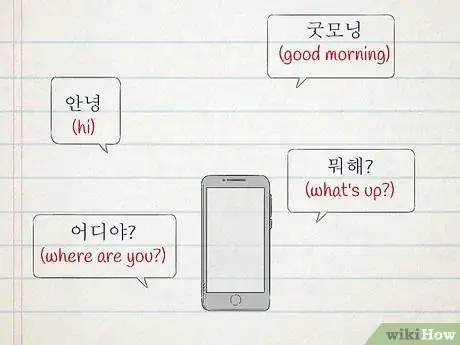
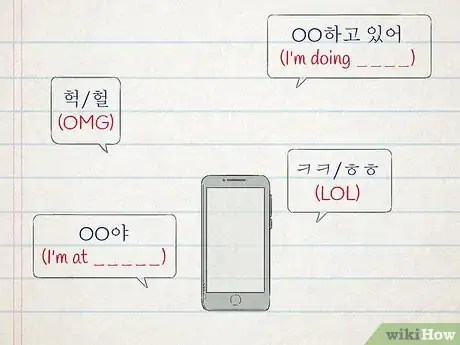
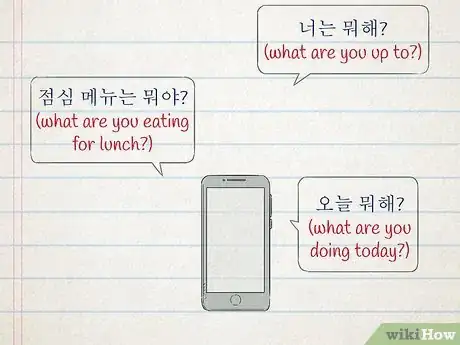
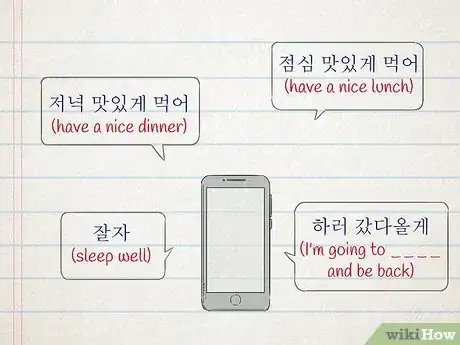
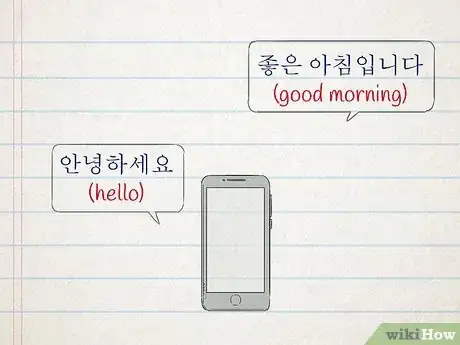
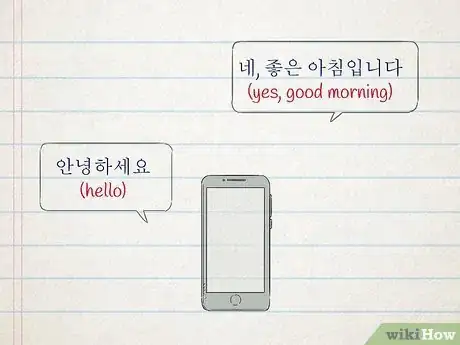
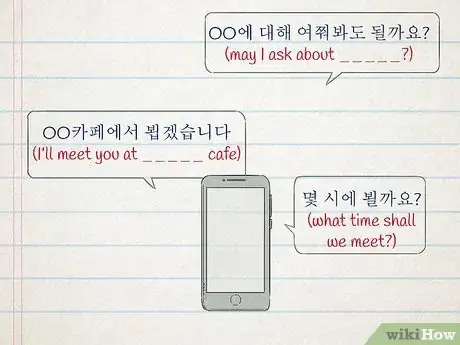
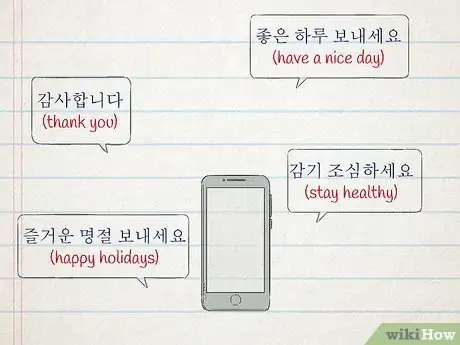


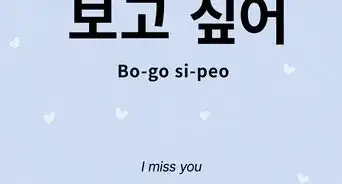

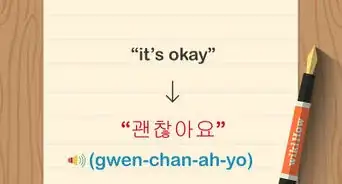
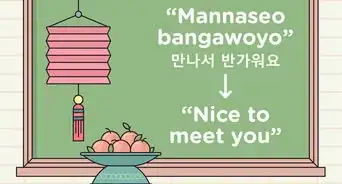

-Step-4.webp)
